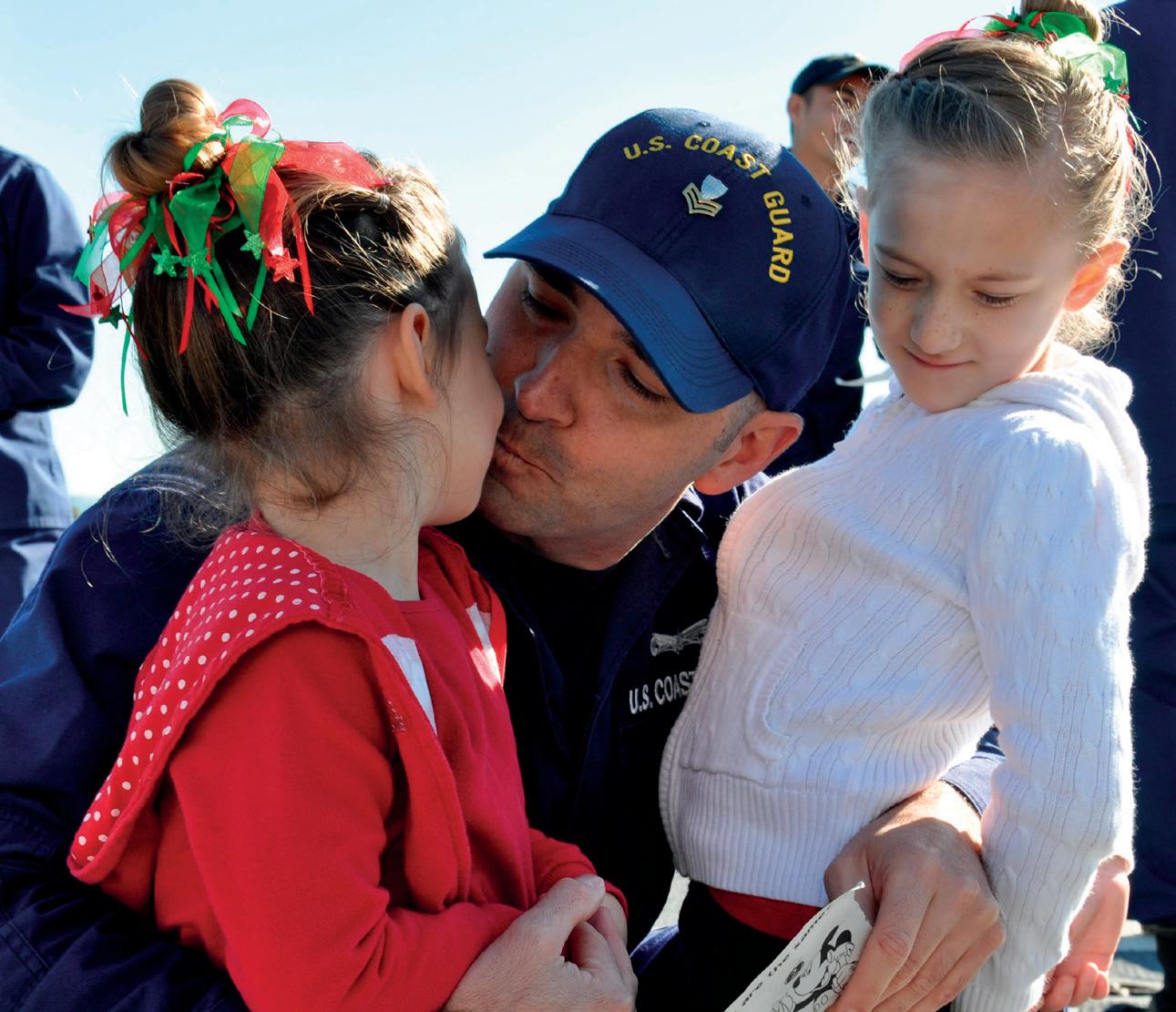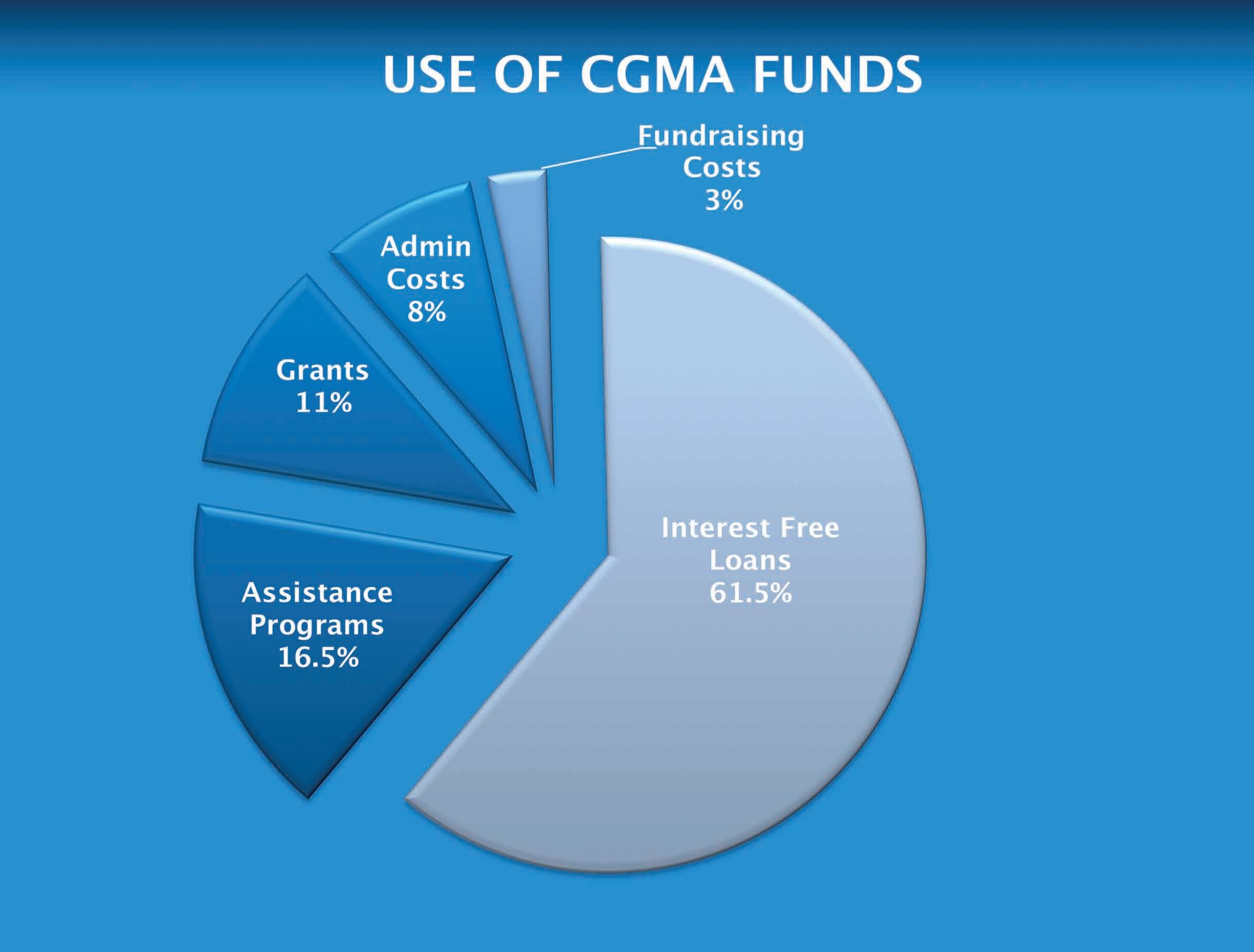
2 minute read
New and Expanded Programs
Education Programs
CGMA has updated existing education programs in response to the evolving educational needs of Coast Guard families. The interest-free education loan has increased from $2,000 to $3,000, allowing clients to borrow more money for themselves or their dependents. For clients that pay the Student Loan Origination Fee for Stafford/Plus Education Loans (up to 4%), CGMA continues to offer direct reimbursement on these charges.
As of January 2015, CGMA’s most popular program, the Supplemental Education Grant (SEG), has increased from $250 to $350 per calendar year and is now open to all degree levels. With a competitive job market requiring further degrees and education, the SEG serves to help our clients pursue higher education by reimbursing the costs of books and supplies.
Special Needs Grant
CGMA also approved a new grant to provide financial assist ance to Active Duty clients who are faced with extra costs in relation to dependents with special needs. To be eligible for the grant, clients must be active duty or reservists on active duty for 181 days or more, with dependents registered in the Coast Guard Special Needs Program. This grant, up to $3,000 per client, helps with costs such as fees for specialized activities (camps, clubs, sporting leagues), the cost of adaptive equipment such as heavy duty strollers, wheelchairs, and the cost of other resources designed to meet special needs, like Assistive Technology Devices (communication devices, hearing aids, etc.) or specialized computer software, as well as membership fees to organizations that provide special needs services. Coast Guard Mutual Assistance recognizes the unique financial challenges that special needs families face, and hopes that the grant will help alleviate some of the financial burden.
Service Animals Loan
CGMA now offers a loan of up to $6,000 for the purchase or training of a service animal to assist a client who is disabled or a member of the client’s immediate family who is disabled. Service animals may be dogs or other animals trained to the requirements of the individual with a disability, including mobility issues, visual impairment, hearing impairment, seizures, diabetes, PTSD, autism, epilepsy, multiple sclerosis, and other physical or mental disabilities.
Emergency Pet Expenses
CGMA has recently expanded assistance for emergency pet expenses. Such expenses may include pet quarantine fees during PCS transfer, veterinary bills for emergency treatment when a pet has become injured or seriously ill, and pet lodging expenses during a move or emergencies when a pet cannot accompany the client during travel.
Source of Funds
Contributions
In order to continue performing its vital role within the Coast Guard community, CGMA relies on a steady infusion of funds from voluntary contributions. Though CGMA works closely with the Coast Guard, it is an independent non-profit organization and receives neither appropriated nor non-appropriated government funding.
Throughout the year, contributions are accept ed from individuals and organizations. A majority of the financial support CGMA receives comes from allotment/payroll deductions from Active Duty members, Retired Military members and Civilian Employees. These allotments/deductions account for over 80% of the $2.15 million in donated funds for 2014.
Repayments on Loans
As the money distributed through interest-free loans is returned to CGMA, these funds are redistributed to other Coast Guard members in need, thereby recycling contribution dollars.
Return on Investments (CGMA Portfolio)
CGMA operations are also supported by the capital generated from the investment portfolio. With a market value of $25 million at the end of 2014, the portfolio allows CGMA to produce income through interest an d dividends and grow capital in low-risk investments. Ultimately this resource serves as a safety net for CGMA to maintain seamless operations.
When needs exceed operating funds, CGMA would draw upon these reserve funds. Whether during times of emergency or during the normal course of business, the portfolio provides an important safeguard to meet client needs without requiring additional contributions.
For every dollar donated in 2014, $1.87 was issued in direct programs and assistance. An additional $ .23 covered administrative and fundraising costs.
CGMA Dollars Hard at Work
With $2.15 million in donations in 2014, CGMA was able to provide interest free loans totaling over $2.78 million. An additional $491,000 in grants was given. Program costs were $750,000, administrative costs were $353,000 and fundraising costs were only $146,500.




